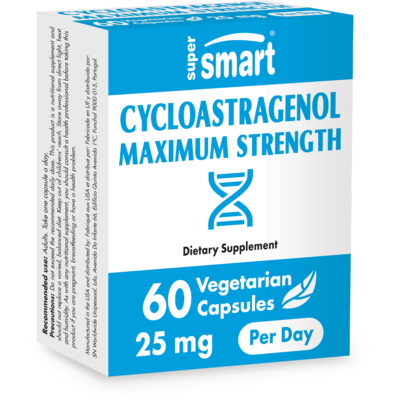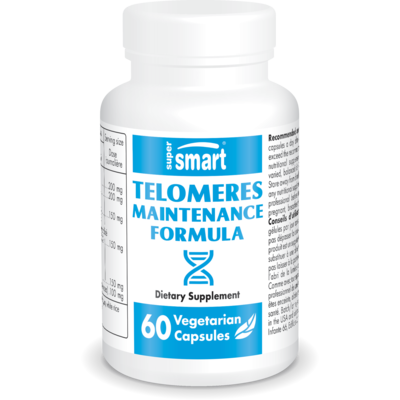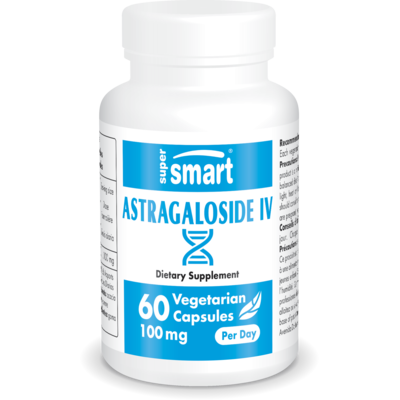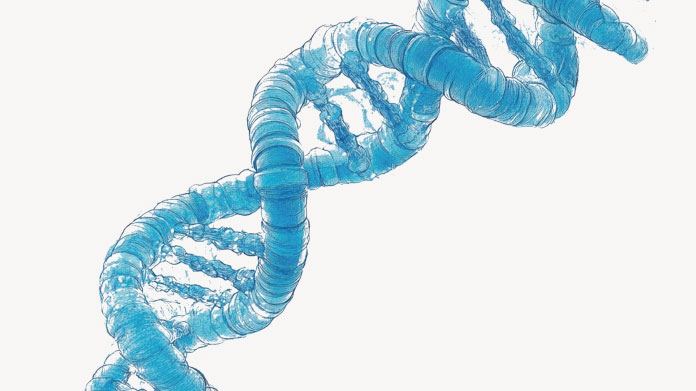Anti-aging: which foods should you eat to activate telomerase?
Telomerase, also known as the ‘immortality enzyme’, is known to hold back aging. How does it work and what should you eat to stimulate its production?
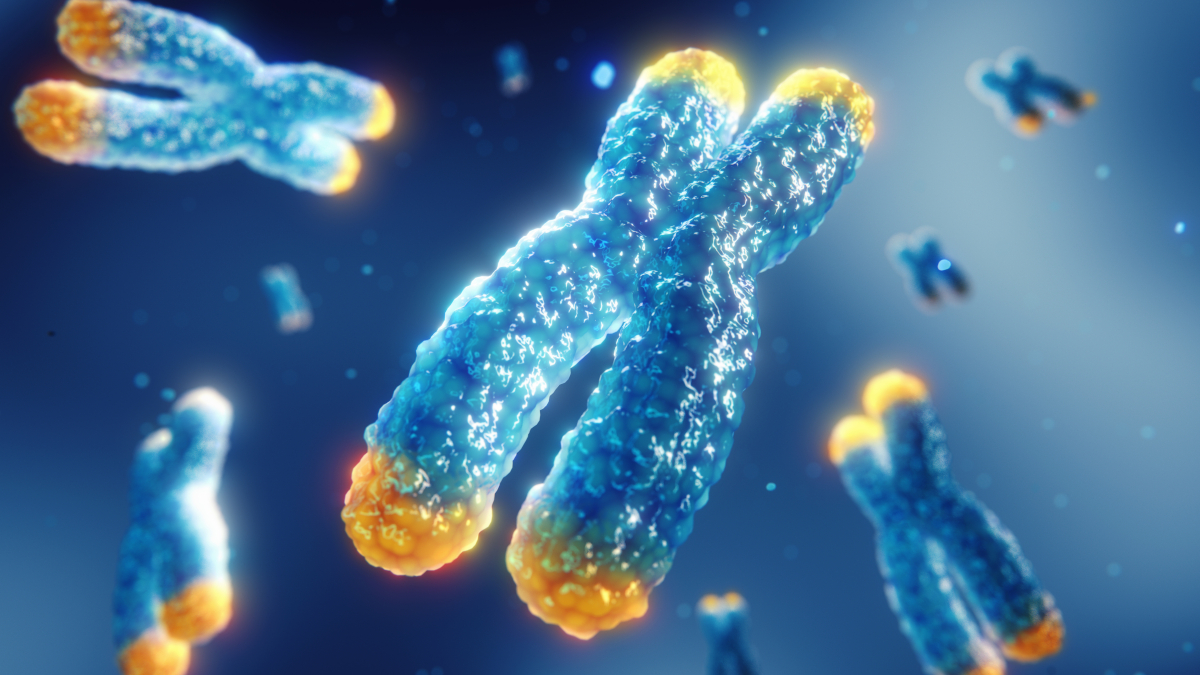
Definition of telomeres and telomerase
As you may know, telomeres are the small caps at the ends of chromosomes responsible for protecting cellular DNA.
Each time our cells self-replicate, telomeres become a little more damaged and shorter. This gradual erosion has the effect of weakening DNA, which in turn has a detrimental effect on cells and on the body.
Telomere-shortening is thus recognized as a key element in the aging process (1). Short telomeres are associated with a higher risk of age-related diseases.
Telomerase is an enzyme naturally present in the body, responsible for preventing this telomere-shrinking by ensuring both the growth and repair of these protective caps. It’s therefore sometimes referred to as the ‘immortality enzyme’ (2).
However, further studies are needed to accurately determine all its effects. For example, it appears that excessive amounts of telomerase cannot be directly absorbed, which could potentially extend the life of already-aberrant cells.
The scientists responsible for discovering this enzyme in 1985, who included Elizabeth Blackburn and Carol Greider, were awarded the 2009 Nobel Prize in Physiology or Medicine for their work.
What can you do to safeguard your telomeres and slow down the aging process?
Stress promotes telomere-shortening. So try to lower your stress levels, by using breathing exercises or meditation, changing your perception of events, and avoiding sources of anxiety wherever possible.
In addition, minimise your exposure to pollution, which also has a negative impact on telomeres.
Regular exercise, on the other hand, helps to preserve them.
And finally, eating a varied, balanced diet (and avoiding alcohol) plays an important role in activating telomerase, protecting telomeres, and thus maintaining good health into old age. Let’s take a look at the best food options.
Foods which activate telomerase production
Telomere length in white blood cells is positively associated with a diet high in whole grains, fruit, vegetables, algae, seafood, dairy products, and coffee and good (3-4). The Mediterranean or Cretan diet, is a good example of such a diet.
Conversely, heavy consumption of red and processed meat and sugary drinks, foods high in oxidants, is associated with shorter telomeres (5).
In general, current studies suggest that anti-inflammatory and antioxidant nutrients may help support telomerase and prevent rapid erosion of telomeres (6). Such nutrients include:
- curcumin, the active ingredient in turmeric;
- resveratrol, an antioxidant found in grapes;
- the many polyphenols in green tea;
- vitamin A, an antioxidant with a role in cell specialisation. It’s found in carrots, amongst others;
- vitamin C, another antioxidant, found in kiwi fruit, peppers and citrus fruit;
- omega-3 from salmon, sardines or soya oil, believed to help prevent runaway inflammation in the body;
- and last but not least, vitamin D, a vitamin and hormone directly involved in the process of cell division, found in herrings, swordfish, mackerel ...
The various compounds studied have been brought together in specific supplements for their potential to preserve telomeres and activate telomerase. The products Cycloastragenol and Astragaloside IV, both substances obtained from the medicinal perennial astragalus, appear particularly promising (7).
SuperSmart ADVICE
References
- Chan SR, Blackburn EH. Telomeres and telomerase. Philos Trans R Soc Lond B Biol Sci. 2004 Jan 29;359(1441):109-21. doi: 10.1098/rstb.2003.1370. PMID: 15065663; PMCID: PMC1693310.
- Saretzki G. Telomeres, Telomerase and Ageing. Subcell Biochem. 2018;90:221-308. doi: 10.1007/978-981-13-2835-0_9. PMID: 30779012.
- Lee JY, Jun NR, Yoon D, Shin C, Baik I. Association between dietary patterns in the remote past and telomere length. Eur J Clin Nutr. 2015 Sep;69(9):1048-52. doi: 10.1038/ejcn.2015.58. Epub 2015 Apr 15. PMID: 25872911.
- Galiè S, Canudas S, Muralidharan J, García-Gavilán J, Bulló M, Salas-Salvadó J. Impact of Nutrition on Telomere Health: Systematic Review of Observational Cohort Studies and Randomized Clinical Trials. Adv Nutr. 2020 May 1;11(3):576-601. doi: 10.1093/advances/nmz107. PMID: 31688893; PMCID: PMC7231592.
- Lee JY, Jun NR, Yoon D, Shin C, Baik I. Association between dietary patterns in the remote past and telomere length. Eur J Clin Nutr. 2015 Sep;69(9):1048-52. doi: 10.1038/ejcn.2015.58. Epub 2015 Apr 15. PMID: 25872911.
- Maleki M, Khelghati N, Alemi F, Bazdar M, Asemi Z, Majidinia M, Sadeghpoor A, Mahmoodpoor A, Jadidi-Niaragh F, Targhazeh N, Yousefi B. Stabilization of telomere by the antioxidant property of polyphenols: Anti-aging potential. Life Sci. 2020 Oct 15;259:118341. doi: 10.1016/j.lfs.2020.118341. Epub 2020 Aug 24. PMID: 32853653.
- Hong H, Xiao J, Guo Q, Du J, Jiang Z, Lu S, Zhang H, Zhang X, Wang X. Cycloastragenol and Astragaloside IV activate telomerase and protect nucleus pulposus cells against high glucose-induced senescence and apoptosis. Exp Ther Med. 2021 Nov;22(5):1326. doi: 10.3892/etm.2021.10761. Epub 2021 Sep 20. PMID: 34630680; PMCID: PMC8495541.
Keywords

